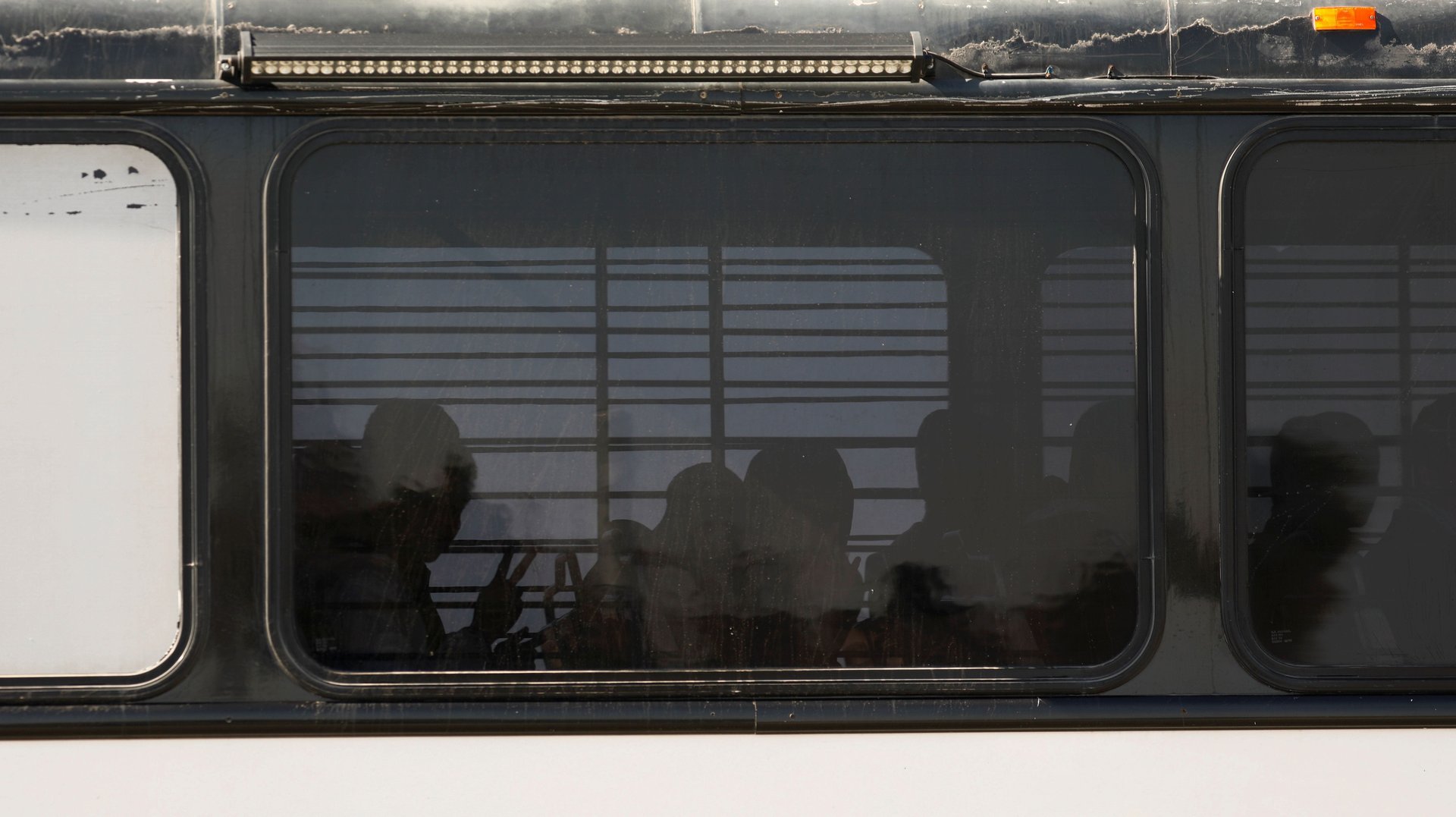The US prison system is running out of room
The federal government’s low-security correctional institutions are at their breaking point, according to a set of redacted contracting documents filed last week by the US Bureau of Prisons (BOP).


The federal government’s low-security correctional institutions are at their breaking point, according to a set of redacted contracting documents filed last week by the US Bureau of Prisons (BOP).
The filing lays out the bureau’s justification for continuing an existing contract with private-prison operator MTC to run its Giles W. Dalby Correctional Facility in Post, Texas instead of putting it out for bids. Dalby currently houses 1,670 “convicted criminal aliens” who will be deported upon completion of their sentences. The filing says Dalby—as well as the 31 other low-security institutions in BOP’s portfolio—can’t handle any more inmates.
“Currently, the Bureau’s low security facilities are operating at [redacted],” it reads. “Moreover, this overcrowding and Bureau’s overall population is expected to significantly increase because of the Attorney General’s April 11, 2017 and May 10, 2017 guidance regarding the aggressive prosecution of certain crimes.”
That guidance, by Donald Trump’s attorney general Jeff Sessions, covered two things: mandatory charges for all migrants who cross the border illegally and a mandate that federal prosecutors pursue the most severe penalties and sentences in all cases.
The Trump administration decided last year to continue using private prisons for federal inmates, reversing a decision by Barack Obama that was implemented by then-deputy attorney general Sally Yates.
“With this change in policy, the Bureau anticipated reducing private prison contracts,” the BOP documents explain. “On February 21, 2017 the Attorney General rescinded the [Yates]…memo, after which the Bureau resumed its prior approach regarding the use of contracted bed space. As a result, the anticipated time period for continuity of services to the maximum extent practical was exceeded.”
According to the bureau’s most recent budget, “population pressures have abated in the past four years,” which means federal prisons overall are now “only” 14% over capacity. Federal maximum-security institutions are overcrowded by 24%. After four years of decline, increased enforcement and prosecution “will increase the national inmate levels by about 2 percent in FY 2018 and by about 1 percent in FY 2019,” says BOP. It doesn’t sound like much until you consider that means close to 10,000 additional people will be incarcerated across the system in the next two years.
Overcrowding increases security risks and makes prisons more dangerous, the BOP says. And the compressed timeframe required to meet the needs of Sessions’ policy changes made it impossible to bid out the existing contract, officials say. Relocating the inmates to other prisons would be so expensive, the BOP says it would “suffer serious financial injury, and it would lose the benefits it derives from contracting with the private sector to help manage its inmate population.
Former FBI Supervisory Special Agent Dennis Franks told Quartz he finds the shift “ridiculous.” Franks, who was a prosecutor before he joined the FBI, managed various units including a multi-agency intelligence group and served as an assistant legal advisor. ”Although I have been pro-law enforcement in two careers that encompassed 25 years, I believe the punishment should fit the crime,” said Franks. “Maximum penalties are not always appropriate. In fact, from a macro perspective, imposition of extraordinary punishment tends to have a negative impact on the overall effort. Any study of criminology demonstrates that it is important to understand the realities of the dynamics of our penal system.”
All of this could have been prevented, said Martin Horn, a former New York City corrections commissioner who is now a professor at the John Jay College of Criminal Justice. ”I think it’s very typical that when police and prosecutors choose a course of action that represents a shift, they never consult with corrections agencies to consider what the impact will be on them,” Horn told Quartz. “This is true at the federal level, as well as the state and local level.”
In a statement to Quartz, the BOP said, “contracting with the private sector provides an effective means of managing low- security inmates. As our population fluctuates, the bureau is able to use the competitive procurement process to ensure adequate capacity is available.”
The Trump administration is also cutting about 1,800 officer jobs across the entire federal prison system. Prison records obtained earlier this year by USA Today revealed that “hundreds of secretaries, teachers, counselors, cooks, and medical staffers” were used as fill-in guards to help alleviate staffing shortages in 2017.
This story was updated with the Bureau of Prisons comment on its need to contract with private-prison operators.